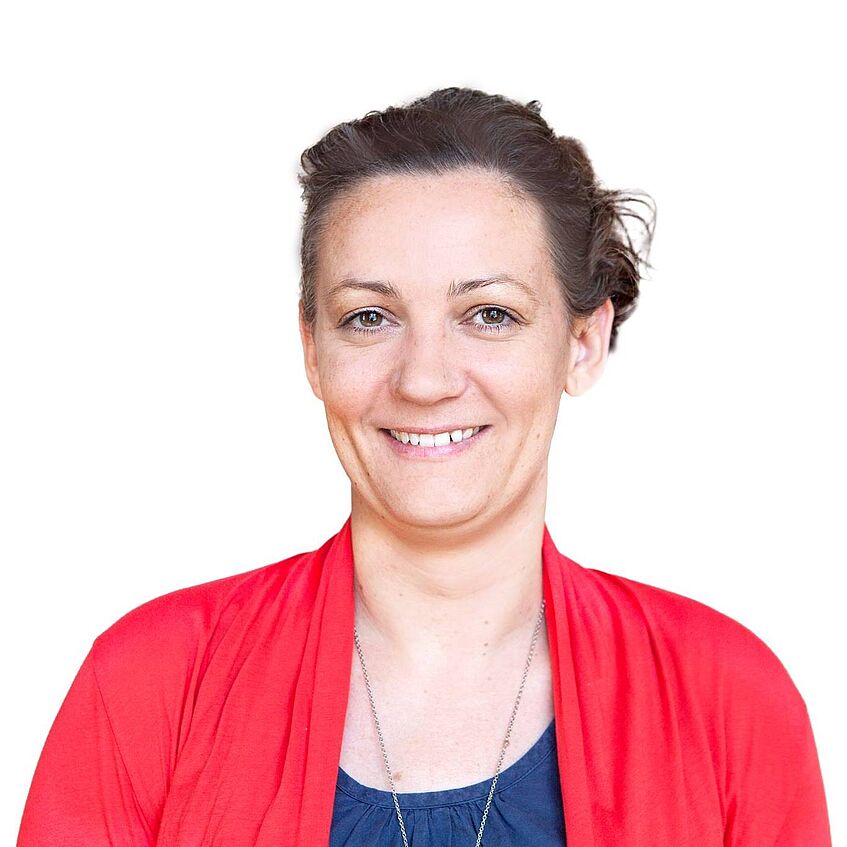Mag. Gabriela Markova, Ph.D.

Research Associate (PostDoc)
T: +43-1-4277-47478
E: gabriela.markova@univie.ac.at
Office: 01.13
Department of Developmental and Educational Psychology
Liebiggasse 5
1010 Vienna
Research Interests
- Early development of social cognition
- Early interactions with parents and peers
- Behavioral and neural coordination in early interactions
- Development of play and humor
Professional Experience
| Since 03/2018 | University of Vienna Research Associate (PostDoc), Developmental Psychology |
| 2016 - 2018 | RED NOSES Clowndoctors International Head of Research |
| 2012 - 2016 | University of Vienna Research Associate (PostDoc), Clinical Child and Adolescent Psychology |
|---|---|
| 2009 - 2013 | Czech Academy of Sciences Postdoctoral Researcher, Institute of Psychology |
Education
| 2003 - 2009 | Ph.D., Psychology York University, Toronto, Canada |
| 1998 - 2003 | Diploma (Mag.Phil.), Psychology Paris Lodron University of Salzburg |
Awards and Stipends
| 2011 | Otto Wichterle Award for Young Scientists Czech Academy of Sciences |
| 2007 - 2008 | President Susan Mann Dissertation Award York University |
| 2007 | Norman S. Endler Research Fellowship York University |
| 2006 | Certificate of Teaching Excellence Award Council of Canadian Departments of Psychology |
Publications
2025
Epstein S, Arnon S, Markova G, Nguyen T, Hoehl S, Eitan L et al. Mother-Preterm Infant Contingent Interactions During Supported Infant-Directed Singing in the NICU-A Feasibility Study. Children. 2025 Sept 22;12(9). doi: 10.3390/children12091273
Nguyen T, Tunçgenç B, Marsh L, Markova G, Horn L, Pointner N et al. Motor synchrony, social learning and closeness in group play settings. Frontiers in Psychology. 2025;16:1595908. doi: 10.3389/fpsyg.2025.1595908
Steele K, Bánki A, Markova G, Hoehl S, Tillman KA. Today, Tomorrow, and Overmorrow: The Acquisition of Deictic Temporal Terms in English and German. Open Mind. 2025;9:1826-1848. doi: 10.1162/OPMI.a.254
2024
Horn L, Windhager S, Juricka N, Bugnyar T, Massen JJM, Markova G. Investigating the effects of prenatal testosterone exposure (via 2D:4D) and socio-relational factors on 3-6-year-old preschoolers' prosocial choices. Early Human Development. 2024 Aug;195:106055. 106055. doi: 10.1016/j.earlhumdev.2024.106055
Horn L, Karsai M, Markova G. An automated, data-driven approach to children's social dynamics in space and time. Child Development Perspectives. 2024 Mar;18(1):36-43. doi: 10.1111/cdep.12495
2023
Nguyen T, Reisner S, Lueger A, Wass SV, Hoehl S, Markova G. Sing to me, baby: Infants show neural tracking and rhythmic movements to live and dynamic maternal singing. Developmental Cognitive Neuroscience. 2023 Dec;64:101313. Epub 2023 Oct 24. doi: 10.1016/j.dcn.2023.101313
Markova G, Nguyen T. Interpersonal synchrony is associated with infants' reactions to subtle changes in caregiver-infant interactions. Social Development. 2023 May;32(2):581-597. doi: 10.1111/sode.12646
2022
Bánki AA, De Eccher M, Falschlehner LV, Hoehl S, Markova G. Comparing Online Webcam- and Laboratory-Based Eye-Tracking for the Assessment of Infants’ Audio-Visual Synchrony Perception. Frontiers in Psychology. 2022 Jan 11;12:1-19. 733933. doi: 10.3389/fpsyg.2021.733933
2021
Markova G, Houdek L, Kocabova Z. To the Operating Room! Positive Effects of a Healthcare Clown Intervention on Children Undergoing Surgery. Frontiers in Public Health. 2021 Apr 20;9:653884. doi: 10.3389/fpubh.2021.653884
Williams K, Bánki AA, Markova G, Hoehl S, Tillman K. A crosslinguistic study of the acquisition of time words in English- and German-speaking children. Proceedings of the Annual Meeting of the Cognitive Science Society. 2021;43:679-685.
2020
Nguyen T, Bánki A, Markova G, Hoehl S. Studying parent-child interaction with hyperscanning. In Meyer M, Hunnius S, editors, New Perspectives on Early Social-cognitive Development. Amsterdam: Elsevier. 2020. p. 1-24. (Progress in Brain Research, Vol. 254). doi: 10.1016/bs.pbr.2020.05.003
Markova G, Nguyen T, Schätz CM, De Eccher M. Singing in Tune – Being in Tune: Relationship Between Maternal Playful Singing and Interpersonal Synchrony. Enfance. 2020 Apr 7;1(1):89-107. doi: 10.3917/enf2.201.0089
2019
Markova G, Nguyen T, Höhl S. Neurobehavioral Interpersonal Synchrony in Early Development: The Role of Interactional Rhythms. Frontiers in Psychology. 2019 Sept 18;10:2078. doi: 10.3389/fpsyg.2019.02078
Markova G, Siposova B. The role of oxytocin in early mother-infant interactions: Variations in maternal affect attunement. Infant Behavior and Development. 2019;55:58-68. doi: 10.1016/j.infbeh.2019.03.003
2018
Höhl S, Markova G. Moving developmental social neuroscience toward a second-person approach. PLoS Biology. 2018 Dec;16(12):e3000055. doi: 10.1371/journal.pbio.3000055
Markova G. The Games Infants Play: Social Games During Early Mother-Infant Interactions and Their Relationship With Oxytocin. Frontiers in Psychology. 2018 Jun 25;9(JUN):1041. doi: 10.3389/fpsyg.2018.01041
2017
Horn L, Markova G, Windhager S, Massen JJM. Children’s prosocial sharing in a resource allocation paradigm constrained by physical properties, not by conventional rules. In Tagungsband der gemeinsamen Tagung der Fachgruppen Entwicklungspsychologie und Pädagogische Psychologie. 2017. p. 350
2016
Markova G, Siposova B. The Role of Oxytocin in Early Mother-Infant Interactions: Examining Variations in Maternal Affect Attunement. 2016. Paper presented at 2016 International Conference on Infant Studies, New Orleans, United States.
Fantasia V, Markova G, Fasulo A, Costall A, Reddy V. Not just being lifted: Infants are sensitive to delay during a pick-up routine. Frontiers in Psychology. 2016 Jan 20;6:2065. doi: 10.3389/fpsyg.2015.02065
2015
Markova G, Hofer J, Legerstee M. Humour among infant peers. 2015. Paper presented at 45th Annual Meeting of The Jean Piaget Society, Toronto, Canada.
